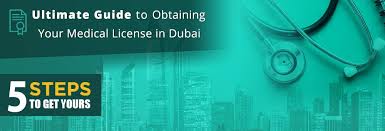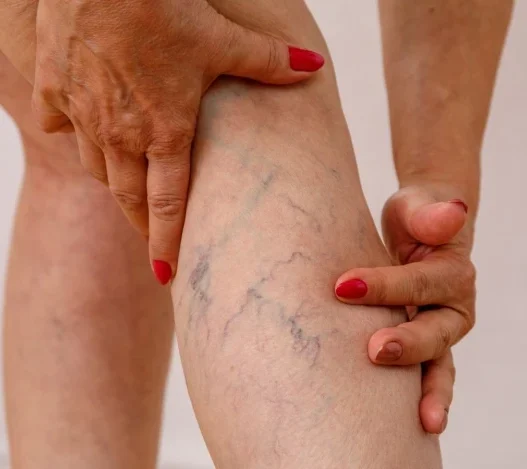Dubai doctor license is a hub for healthcare professionals, offering world-class medical facilities and a rapidly growing healthcare sector. If you are a doctor looking to practice in this vibrant city, it is essential to obtain a medical license. The process to obtain a medical license dubai is governed by the Dubai Health Authority (DHA) and involves several steps, including documentation, exams, and approvals. In this guide, we will walk you through the entire process, helping you understand how to become a licensed doctor in Dubai.
Step 1: Understand the Licensing Authorities
Before applying for a medical license in Dubai, it is crucial to know the different healthcare regulatory authorities in the UAE:
- Dubai Health Authority (DHA) – Governs all healthcare professionals working within Dubai.
- Ministry of Health and Prevention (MOHAP) – Regulates medical professionals in the Northern Emirates, such as Sharjah, Ajman, Fujairah, Umm Al Quwain, and Ras Al Khaimah.
- Department of Health (DOH) – Responsible for licensing healthcare professionals in Abu Dhabi.
Since this guide focuses on practicing medicine in Dubai, your licensing authority will be the DHA.
Step 2: Check Eligibility for a Medical License in Dubai
The first step in applying for a medical license in Dubai is to check if you meet the DHA’s eligibility criteria. The DHA has specific guidelines for medical professionals from different countries. The eligibility depends on:
- Your medical degree and the country of education
- Post-graduate training or residency
- Years of experience in your specialty
- Completion of recognized medical exams, such as USMLE, PLAB, or equivalents from recognized countries
Educational Requirements
Doctors must hold a recognized primary medical degree (MBBS, MBBCh, or equivalent) and meet the following additional requirements based on their specialization:
- General Practitioners (GPs): Must have completed at least one year of internship and two years of clinical experience post-graduation.
- Specialists: Require a recognized specialty degree and at least three years of experience in the specialty field.
- Consultants: Must have a recognized specialty degree with eight years of relevant experience.
Step 3: Create a DHA Account and Submit Your Documents
Once you are sure you meet the eligibility criteria, the next step is to create an account on the Sheryan platform, the DHA’s online licensing system. This system will be your portal to submit all necessary documentation, track your application, and communicate with the authority.
Required Documents
To apply for a medical license in Dubai, you will need the following documents:
- Copy of Passport and Visa – Make sure your passport is valid for at least six months.
- Educational Certificates – Primary medical degree and any postgraduate specialty degrees must be notarized and attested.
- Experience Certificates – A certificate from each place you have worked, covering the required years of experience.
- Good Standing Certificate – A document from your home country’s medical board confirming that you are a doctor in good standing.
- Medical Licensing Exam Results – If applicable, such as USMLE or PLAB results.
- Recent Passport-sized Photograph – According to UAE specifications.
- Proof of Medical Malpractice Insurance – Required for all doctors practicing in Dubai.
After submitting these documents, the DHA will review your application. This process typically takes a few weeks, so it is important to keep an eye on your application status through your Sheryan account.
Step 4: Pass the DHA Assessment Exams
Once your documents are approved, you will need to pass the DHA licensing exam to obtain your medical license in Dubai. The exam assesses your medical knowledge and competency in your field.
Exam Format
The DHA exam can be either a computer-based test (CBT) or a structured oral exam, depending on your specialty:
- General Practitioners will take a CBT that covers general medical knowledge.
- Specialists and Consultants may be required to take an oral exam, which typically involves case-based discussions and clinical scenarios.
How to Prepare
- Study Guidelines: The DHA provides a list of topics and references that the exam covers. Review this information carefully to ensure you are well-prepared.
- Mock Exams: Several online platforms offer mock exams that simulate the DHA exam environment. Practice these to familiarize yourself with the format and time constraints.
Step 5: Undergo a Fitness to Practice Evaluation
After passing the DHA exam, the next step is the Fitness to Practice Evaluation. This assessment ensures that you are physically and mentally capable of practicing medicine safely in Dubai.
What It Involves
The evaluation consists of:
- Medical Examination: A routine health check-up, including a vision test, blood test, and other assessments to ensure you are free from contagious diseases.
- Mental Health Evaluation: An assessment of your psychological well-being to ensure that you can handle the stress and demands of being a doctor.
Step 6: Obtain Your DHA License
Once you have passed the exams and fitness evaluation, the DHA will issue your medical license in Dubai. This license allows you to practice in any DHA-licensed medical facility in Dubai, including hospitals, clinics, and healthcare centers.
License Validity
The DHA medical license is valid for one year and must be renewed annually. Renewal requires you to meet continuous professional development (CPD) requirements, which include attending seminars, workshops, or completing online courses related to your field of practice.
Step 7: Secure Employment
With your medical license in Dubai in hand, the next step is to secure employment. Doctors in Dubai typically work in one of the following types of facilities:
- Government Hospitals and Clinics: Managed by the DHA and other government bodies, offering stable jobs and competitive salaries.
- Private Hospitals and Clinics: Dubai has a booming private healthcare sector, with many opportunities for specialists.
- Medical Centers and Polyclinics: These smaller facilities focus on specific healthcare services such as dermatology, pediatrics, or dentistry.
Many healthcare institutions in Dubai actively seek qualified doctors with DHA licenses, and you can start applying for jobs as soon as your license is issued.
Step 8: Get Malpractice Insurance
As a licensed doctor, you must have medical malpractice insurance before starting your practice. Dubai’s healthcare regulations mandate that all practicing doctors be covered by an insurance policy that protects them against legal claims or negligence lawsuits.
How to Obtain Malpractice Insurance
- Through Your Employer: Most hospitals and clinics in Dubai provide malpractice insurance as part of their employment package.
- Private Insurance Providers: If not offered by your employer, you will need to purchase it independently from an insurance company in Dubai.
Step 9: Continuous Professional Development (CPD)
Dubai requires doctors to continuously upgrade their skills and knowledge through professional development activities. To maintain your medical license in Dubai, you will need to accumulate a specific number of CPD points each year.
CPD Activities Include:
- Workshops and Conferences: Participate in medical conferences, seminars, and workshops.
- Online Learning: Complete online courses and certifications approved by the DHA.
- Research and Publications: Publishing medical research or contributing to peer-reviewed journals can also count towards your CPD points.
Conclusion
Obtaining a medical license in Dubai involves several steps, from verifying your qualifications and submitting documents to passing exams and securing employment. With the healthcare sector in Dubai expanding rapidly, there are numerous opportunities for doctors to build a successful career in this dynamic city. By following this step-by-step guide, you will be well on your way to becoming a licensed doctor in Dubai and contributing to its thriving healthcare industry.










